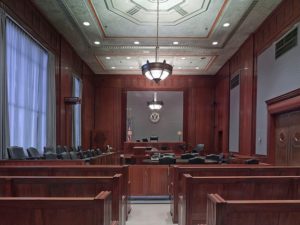The Thrill of Jury Duty
I don’t know your opinion of former President Barack Obama, but his recent step in reporting for jury duty elevated my view of him.
After all, as the one-time leader of the free world, with a schedule far busier than the average American’s, he could have easily gotten excused. The reasons could have ranged from extensive travel to his legal background.
Or, the plausible reason that his presence could prevent the defendant from getting a fair trial. Judging by the hysteria his appearance generated, it would have been a well-grounded argument.
Reporting for Duty

In reading the attendant media coverage, I discovered that Oprah Winfrey had also answered a court summons in 2004. The talk-show maven served on a jury in a murder case.
I had never heard that, but my opinion of her also ratcheted up a notch.
One reason is my experience being called for jury duty in early September. It was a most inopportune time, amid a pair of book ghostwriting and editing projects. Plus, our scheduled early October break.
Vacation was listed as a valid reason for being excused.
I mentioned our plans when I filled out the initial questionnaire that I had to mail back within 10 days. No one responded, meaning reporting to the courthouse the first day, along with 125 others.
After a clerk reviewed some preliminary details and distributed another questionnaire, she said if anyone needed to talk to the judge to write their name on a pad of paper.
When I asked her about my vacation, she said I would be automatically excused for that week—only.
Serious Issues
When I completed that day’s questionnaire, I noticed the normal questions about occupation, family and background. Everything else concerned whether anyone knew the defendants, witnesses, police officers, or attorneys in a pending murder trial.
It was a particularly stomach-turning case, with a mother and stepfather accused of murder after her three-year-old son died from apparent child abuse.
In the old days, one had to go to the courthouse daily to learn whether they were needed. Fortunately, in the modern world, we received a card with our juror number on it and instructions to call after 5 p.m. to learn about the next day.
The clerk mentioned that numbers would be called in chronological order, meaning that 125 (mine was 81) would have to wait through the entire recording.
Answering the Call
My chances were about one in three of being part of the 42-member jury pool that would be called. Twelve would ultimately be seated, along with an alternate.
Aside from the 12-hour days that getting picked could bring (forcing me to do several hours of writing or editing at night), I wasn’t too keen about tackling the responsibility of serving on a jury weighing such serious charges.
Ironic, since soon after college graduation I wound up covering numerous murder trials for a daily newspaper in West Palm Beach, Florida. The weight of making this decision rather than reporting about it took on a new perspective.
I called about 5:15 that first evening, holding my breath as the pre-recorded voice went through the numbers. When she jumped from “79” to “89,” I breathed a sigh of relief.
Given that the murder case was the only thing they asked us about, I figured that if I didn’t get called for that trial, I wouldn’t have to serve on any other jury.
Turns out I was correct. Each night I learned my presence wouldn’t be needed the next day.
Still, like President Obama, I would have served if needed. As the judge said, “This is part of being a citizen.”



